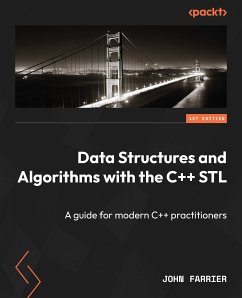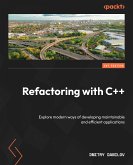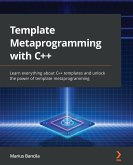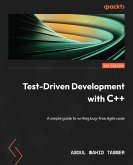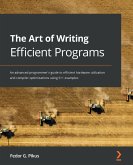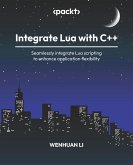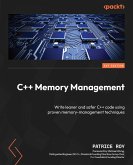Starting with an in-depth analysis of the std::vector, this book highlights its pivotal role in the STL, progressing toward building your proficiency in utilizing vectors, managing memory, and leveraging iterators. The book then advances to STL's data structures, including sequence containers, associative containers, and unordered containers, simplifying the concepts of container adaptors and views to enhance your knowledge of modern STL programming. Shifting the focus to STL algorithms, you'll get to grips with sorting, searching, and transformations and develop the skills to implement and modify algorithms with best practices. Advanced sections cover extending the STL with custom types and algorithms, as well as concurrency features, exception safety, and parallel algorithms.
By the end of this book, you'll have transformed into a proficient STL practitioner ready to tackle real-world challenges and build efficient and scalable C++ applications.
Dieser Download kann aus rechtlichen Gründen nur mit Rechnungsadresse in A, B, BG, CY, CZ, D, DK, EW, E, FIN, F, GR, H, IRL, I, LT, L, LR, M, NL, PL, P, R, S, SLO, SK ausgeliefert werden.
Hinweis: Dieser Artikel kann nur an eine deutsche Lieferadresse ausgeliefert werden.

